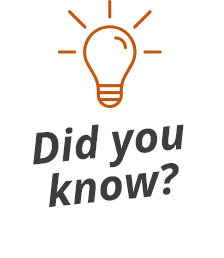Safety and health tips for the cold months in Washington State
Changes in weather can bring unexpected challenges and sometimes emergencies.
Icey roads, power outages, floods, and fires happen most during the cold months. People also get sick more often or get injured because of the cold.
With a little preparation and knowledge, you can take steps to stay safe. We’ve gathered resources and tips to help you get ready for this winter and next.
Guides to help you prepare for winter
Take a look at these guides to make sure you are prepared. From preventing fires at home, to winter driving, and making an emergency plan, this is a good place to start.
- Keep your home safe from fires with the help of the U.S. Fire Administration’s Prevent Fires guide and the National Fire Protection Association’s Fire Safety Tips for Cold Weather.
- Prepare for winter driving with Washington State Department of Transportation’s Winter Driving Guideopens PDF file and Mountain Pass Travel Information.
- Make an emergency plan and share it with your household. Follow U.S. Department of Homeland Security’s Make a Plan guide, available in 12 languages.
Weather emergencies and natural disasters
We can’t prevent storms, natural disasters, or freezing temperatures, but there are steps we can take to prepare for them and resources for when they do happen.
Food safety
- Food Safety in a Disaster or Emergency by the U.S. Department of Health & Human Services (HHS).
Power outages, windstorms
- Stay safe during a power outage by the Washington State Department of Health (WA DOH), including drinking water safety and tips for using a generator.
- Windstorms: Before, during, and after by the WA DOH.
Floods, wildfires
- Floods: Before, during, and after by the WA DOH including cleanup, safe drinking water, mold, and lost pets or animals.
- Flood Safety Tips and Resources by the National Weather Service.
- Wildfires: Before, during, and after by the WA DOH for information about what you can do to help save lives and reduce damage.
Earthquakes, tsunamis, volcanoes, landslides
- Emergency Preparedness guide for earthquakes, tsunamis, volcanic activity, and landslides from the WA State Department of Natural Resources.
- Earthquakes: Before, during, and after by the WA DOH.
- Things to know to stay safe before and after a volcanic eruption by WA DOH.
Find weather forecasts, warnings, and weather safety information for all hazards on the National Weather Service’s website. There are additional resources to help you prepare from the WA DOH on Severe Weather and Natural Disasters.
Finding help in a natural disaster
Part of being prepared for a natural disaster or emergency is knowing where to go and what to do when you need help. Take a look at these resources now so you know what to do later.
- Local disaster recovery centers and emergency response resources through the Federal Emergency Management Agency (FEMA).
- Temporary shelter and other resources with help of the American Red Cross.
- During a natural disaster, you may be newly eligible for food benefits through the Disaster Supplemental Nutrition Assistance Program (D-SNAP).
Everyday tips for physical and mental wellness
Caring for the mind and body every day is essential all year. It may just look a little different when it’s cold outside. Here are some tips and reminders to support your physical and mental health in the winter.
Fight colds, flus, and viruses
- Handwashing: Clean Hands Save Lives by U.S. Centers for Disease Control and Prevention (CDC).
- Colds, Flu, and COVID-19 by University of Washington (UW) Medicine.
- Yes, Vaccines Are Safe. Here Are the Ones You Need by UW Medicine.
Falls, injury prevention, and frost bite
- Falls and Related Injuries by National Institute on Aging.
- How to Winterize Your Home to Prevent Falls by the National Council on Aging.
- Preventing hypothermia from the WA DOH and Frostbite signs and prevention from the Chelan Douglas Health District.
Mental wellness during the winter
- The WA Warm Line is a peer support helpline you can call if you’re having emotional or mental health challenges from trained volunteers with lived experiences.
Help to get clothes, cash, food, shelter
If you could use help to get warm clothing, cash assistance, food, shelter, or other support for everyday needs, look here:
- Connect to local support online with CHPW’s Findhelp resource hub.
- WA 2-1-1 is a directory of resources available in Washington. Search online or talk to someone by dialing 211 or text “211WAOD” to 898211.
- Search local resources for parents and kids online at Help Me Grow.
Learn more
Washington State Department of Health’s Be Prepared, Be Safe
Community Health of Central Washington’s Winter Safety Tips


